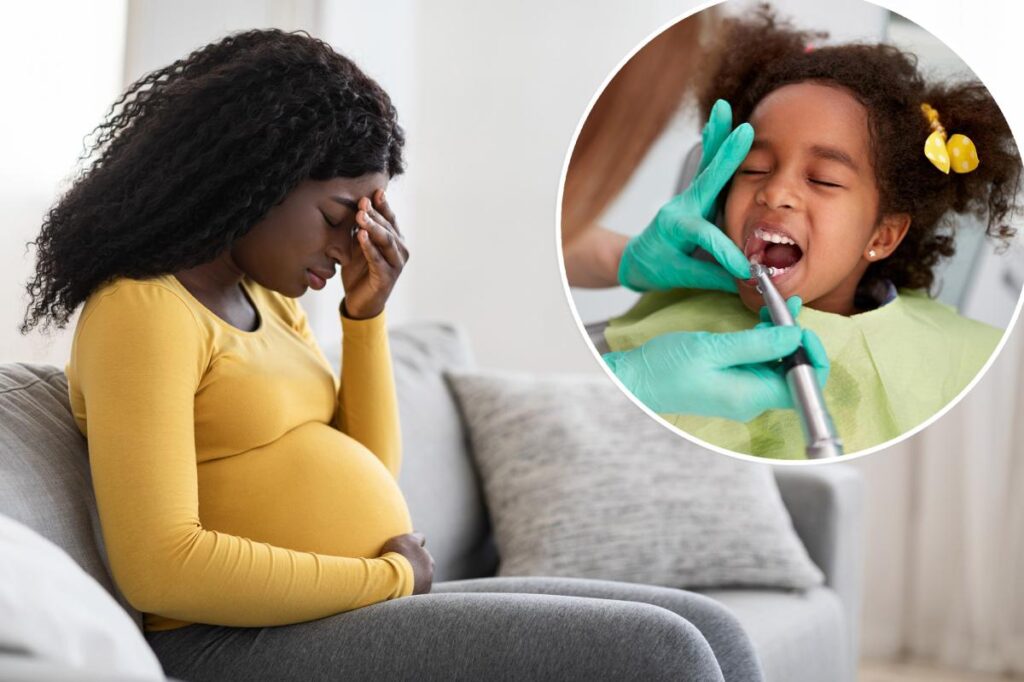Take a chill pill, momma.
Stress can affect pregnant women in several ways, from high blood pressure to heart disease and even premature birth before 37 weeks, a leading cause of newborn death and disability.
And new research indicates that stressed-out soon-to-be moms may be aging their babies faster in one unexpected way.
Experts from the University of Rochester suggest that teething starts sooner for babies of frazzled moms.
“We show that a mother’s higher levels of stress-related hormones, particularly of cortisol, during late pregnancy are associated with the earlier eruption of primary teeth in her infant,” said corresponding study author Ying Meng, an associate professor at the School of Nursing of the University of Rochester.
It may be hard to remember, but you and all your baby friends sprouted 20 teeth between 6 months and 3 years old.
Factors like genetics, nutrition, birth weight and maternal age influenced when these “milk” teeth erupted.
For the new study, saliva samples were collected from 142 impoverished women in their second and third trimesters to measure their levels of cortisol, progesterone, testosterone and other hormones.
The full-term newborns were brought in for dental visits at 1, 2, 4, 6, 12, 18 and 24 months old.
By 6 months, 15% of the babies had one to six teeth, and by 12 months, nearly 98% of the babies had up to 12 teeth.
The infants of mothers with the highest cortisol levels in their saliva had four more teeth on average at 6 months old compared to the babies of mothers with the least cortisol.
The primary “stress hormone,” cortisol doesn’t just start up the fight-or-flight response — it can also negatively affect bone growth, especially in developing babies.
“High maternal cortisol during late pregnancy may alter fetal growth and mineral metabolism, including the regulation of levels of calcium and vitamin D — both essential for mineralization of bone and teeth,” Meng explained.
“Cortisol is also known to influence the activity of so-called osteoblast and osteoclast cells, responsible for building up, shaping and remodeling bone.”
And while early erupting teeth are generally not cause for concern, new parents should be on the lookout for signs of discomfort in their baby.
The researchers also identified weaker but still notable links between:
- The mother’s level of estradiol and testosterone and a greater number of baby teeth at 1 year
- The maternal level of progesterone and testosterone and the number of teeth at 2
- Her level of the thyroid hormone triiodothyronine and teeth at 18 and 24 months
The findings were published Tuesday in Frontiers in Oral Health.
“We still have key questions that need answering,” Meng said.
“For example, which maternal hormones or downstream developmental pathways drive the change in the timing of tooth eruption, what the exact relationship is between accelerated eruption of teeth and biological aging and development and what such speeding up says about a child’s general health.”
Read the full article here

















